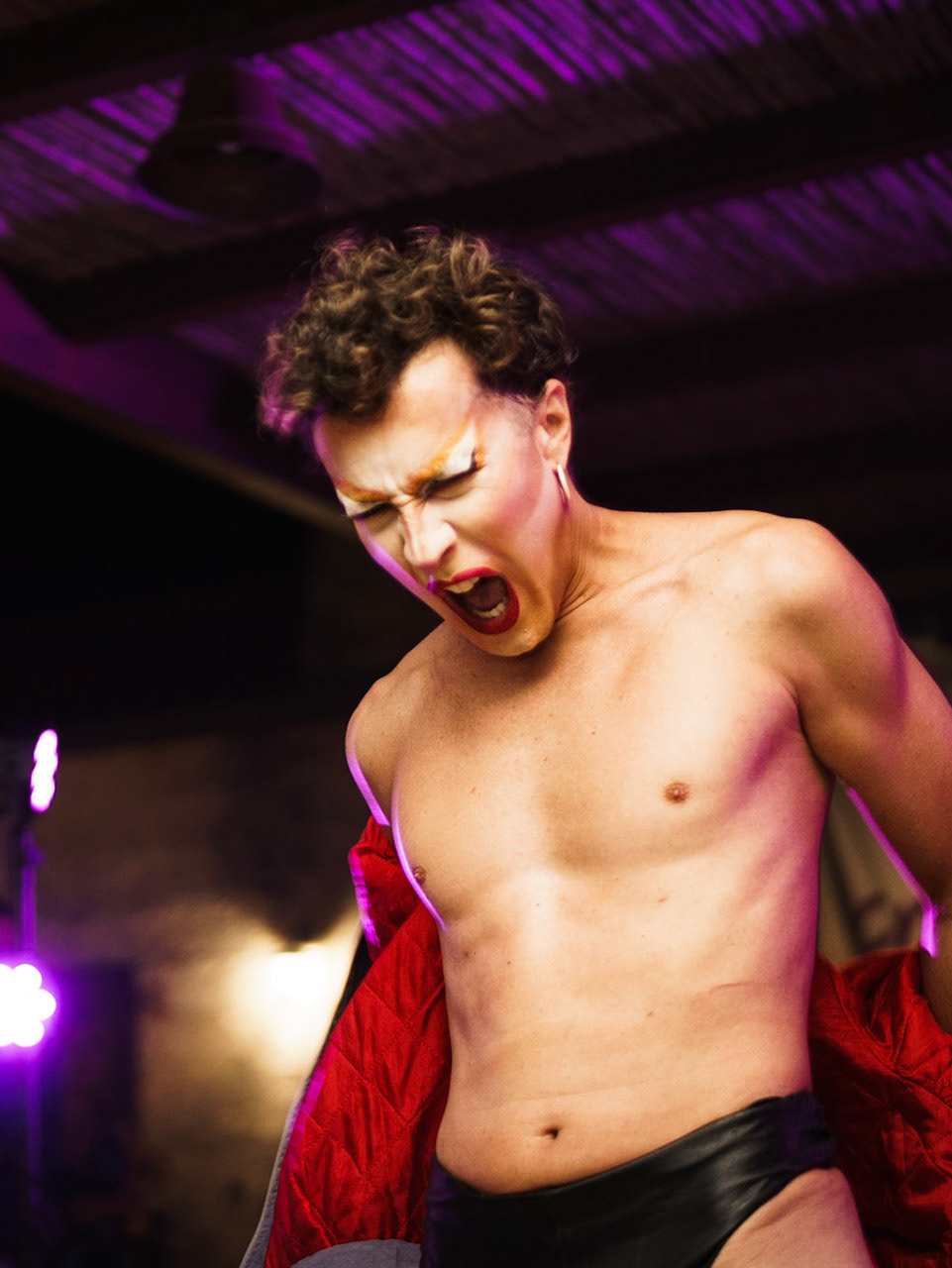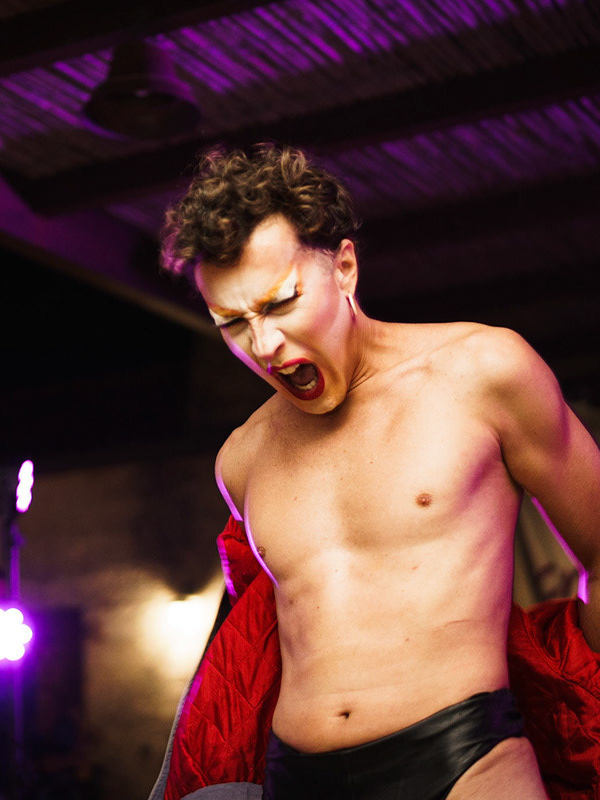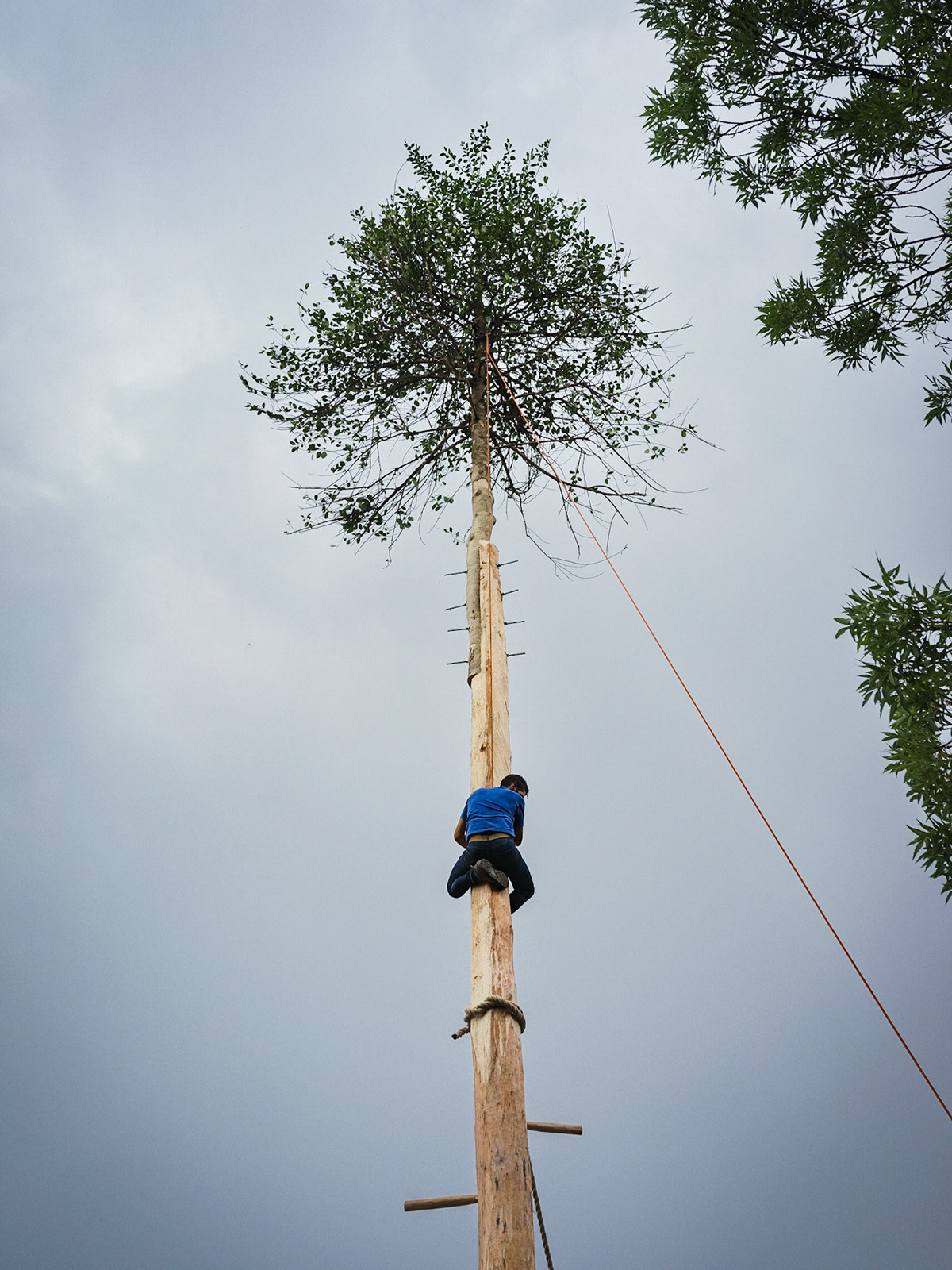Marsa Racing Club
Sunday afternoon, 2pm. Scores of people jam Marsa streets with their cars and carts, flocking to Malta's racing track.
For a lot of Malteses it's time for meeting and for betting. It's time for races.
After a race, the winner horse must be calmed down walking circles around the press yard before being able to properly stop for press photo shoots. Usually, a family member takes care of him or her while the jockey is being interviewed
Malta racing track, November 2019
Depending on who's running and whom you're betting on, people may come just to watch a single race and to spend the rest of the time socialising.
Malta racing track, November 2019
To approach Maltese racing community means also to zoom out from the Marsa racing track and neighbourhood. Horse racing here starts with horse farming.
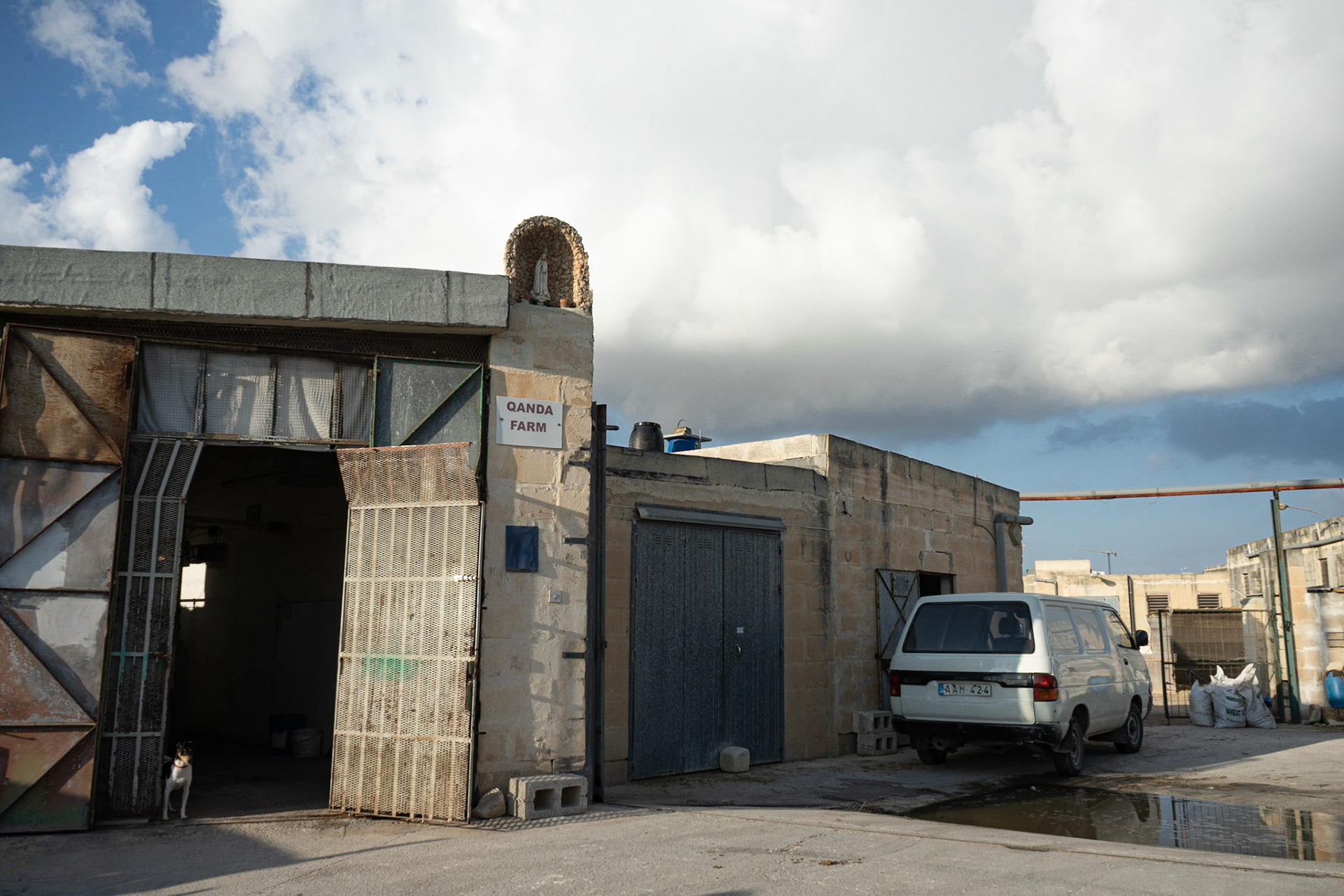
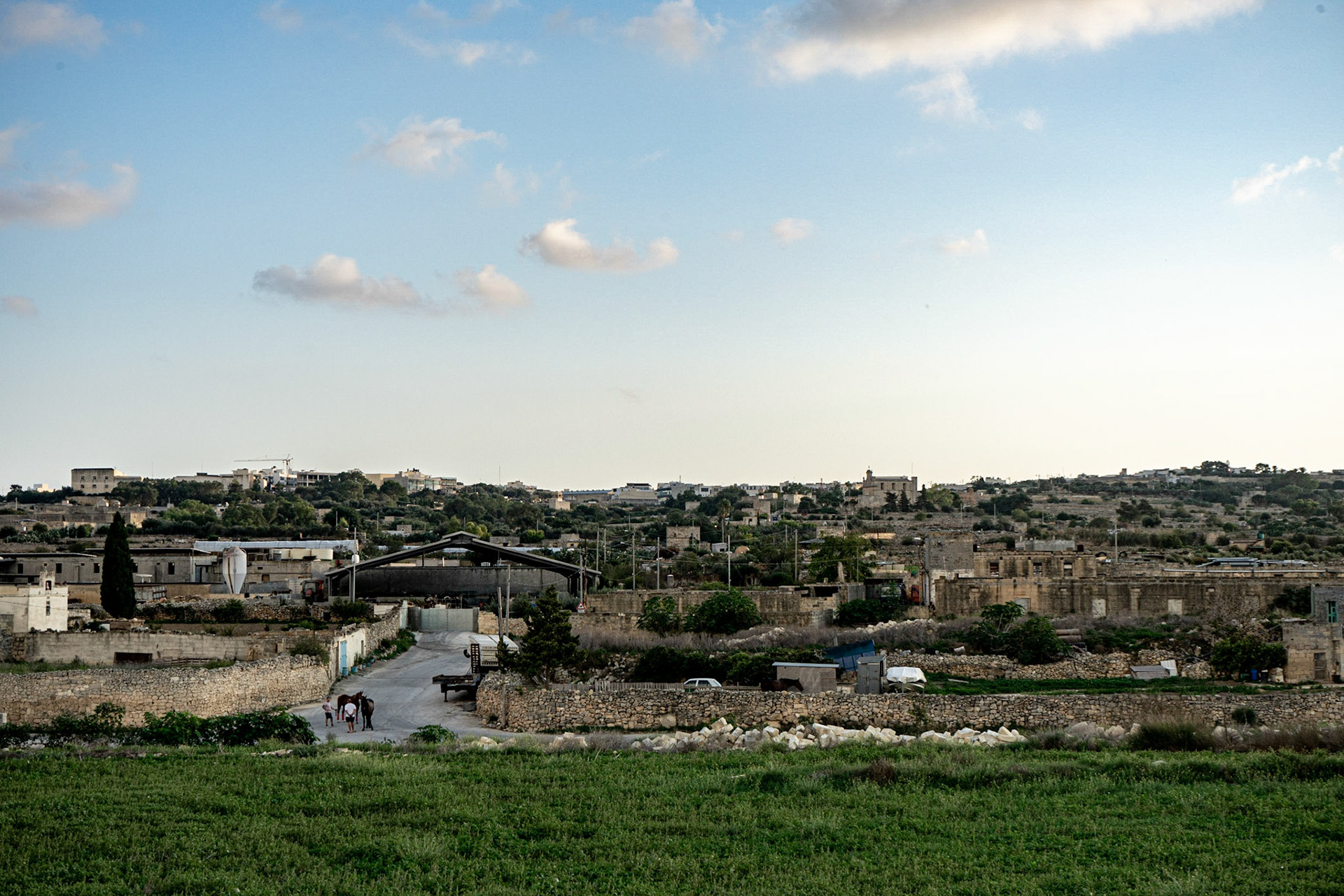
Horse farms usually are country properties equipped for feeding and for basic care of the animals, but not large enough to let them run free and train for harness racing - the main and most popular racing discipline here in Malta.
Carmine teaching his nephew. Horse farming countrysides West of Qormi, October 2019
Soil consumption and the exploding Maltese building industry are looming upon what remains of Maltese countryside. Even in the loneliest and most isolated spot you can find, you will always spot at least three or four cranes on the horizon. The impression of the countryside being "besieged" by soil consumption is difficult to shake off.
Countryside West of Qormi, October 2019
Countryside West of Qormi, October 2019
Horse-racing household right behind the racing track. Races just ended, and families are getting back home. Inside, a cart and plenty of photos tell the story of a long family tradition. Marsa, October 2019
People thus train their horses in the actual racing track, usually in early morning hours, being affiliated with the Malta Racing Club and being of course granted permission.
But for daily purposes, owners and familiars just walk them out on public roads. It's easy in Malta to find people walking horses in the same street where cars are driven. Except for the new countryside tourism services now providing horse rides for foreigners, you won’t see any horse saddled or any local actually riding one
Even if the average public is easily definable as middle-aged, male and Maltese, watching Sunday races and going in horse farms you realise there's a unexpected diversity within this world.
Races in Malta are an inherently familiar matter.
Races in Malta are an inherently familiar matter.
In this climate, "jockeys" (technically drivers) are looked up to as model and stars from youths. They're icons of fame and success.
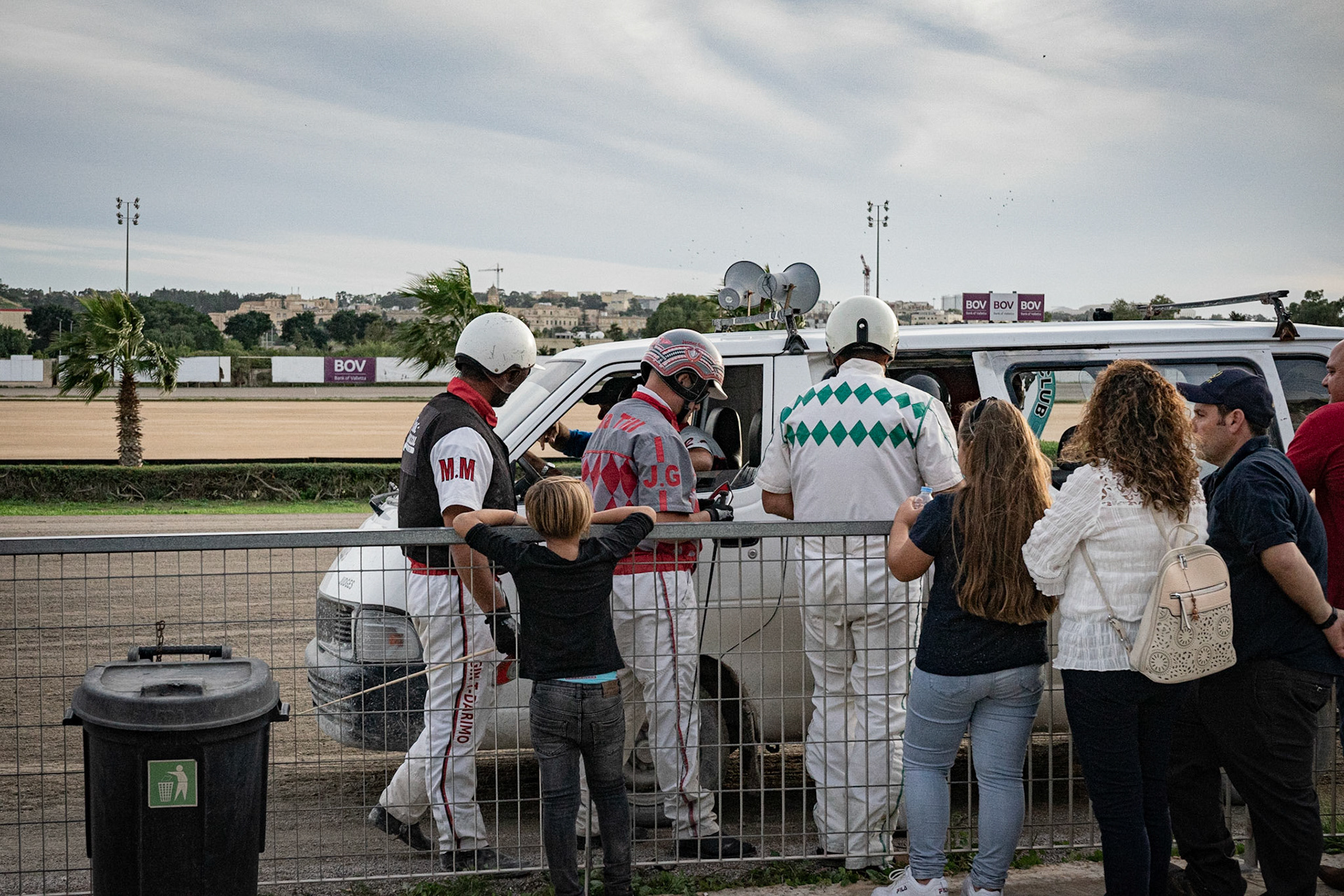
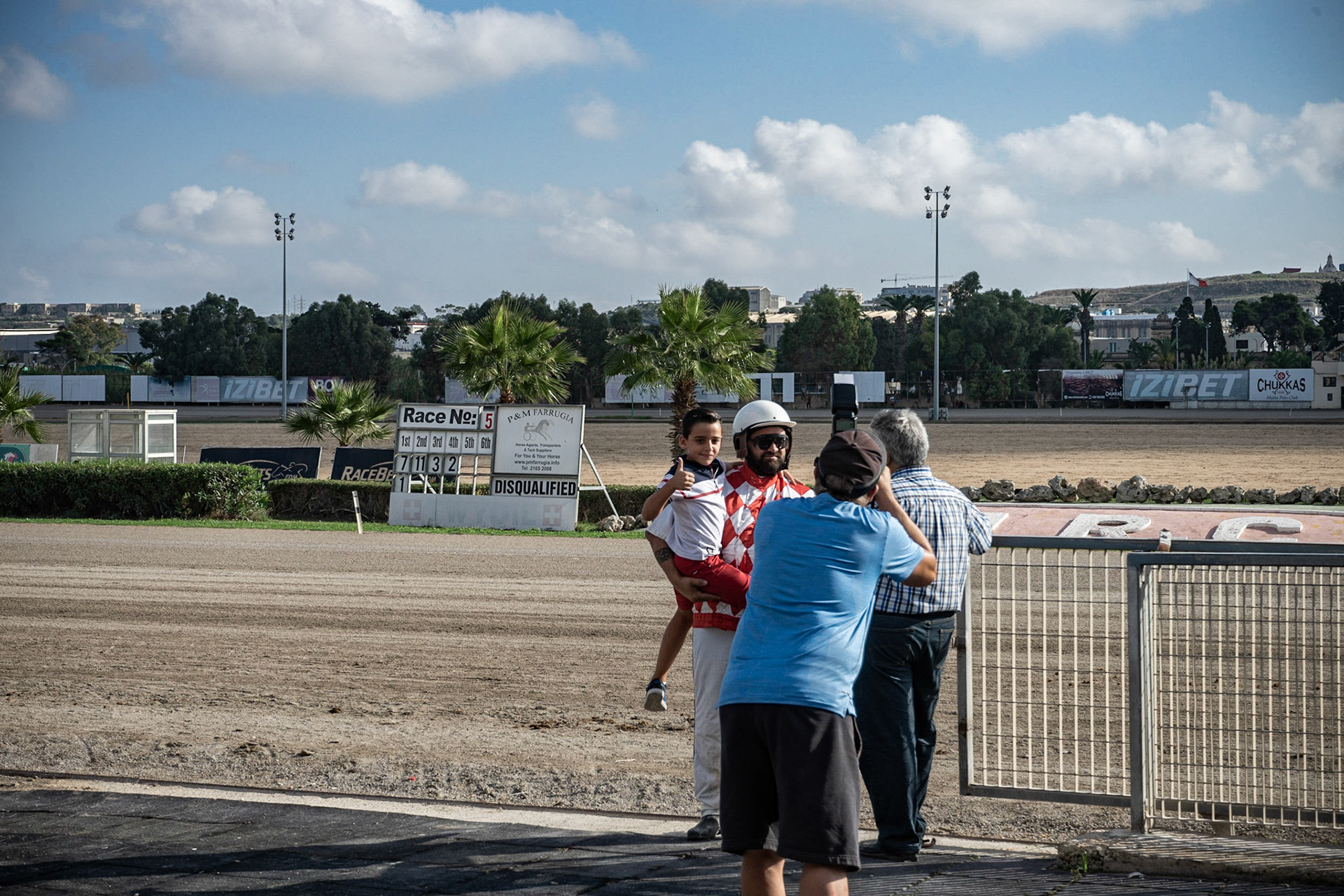
But the thing with jockeys is that you don't really find this fame or success driving them out of reach from the public. In my perspective, I've always found them easily mingling within the tribunes, even right after racing.
At the finish line, familiars and betters take advantage of the free open space to run with the horses shouting and inciting their bet
Marsa, November 2019
Marsa, November 2019
Being horse farming and racing a familiar and tight-community event, and being Maltese community in general so small, no one really opts off from social networking or acts like VIPs. The climate is always an easy one, even after tight wins and photo-finish calls in races.
Women, both old and young, are ever-present in races. And much more than I could expect. Both Darlene, 19, and Josephina, in her 70s, told me that women come watch and bet on races as men. At times even more than men, depending on your wealth.
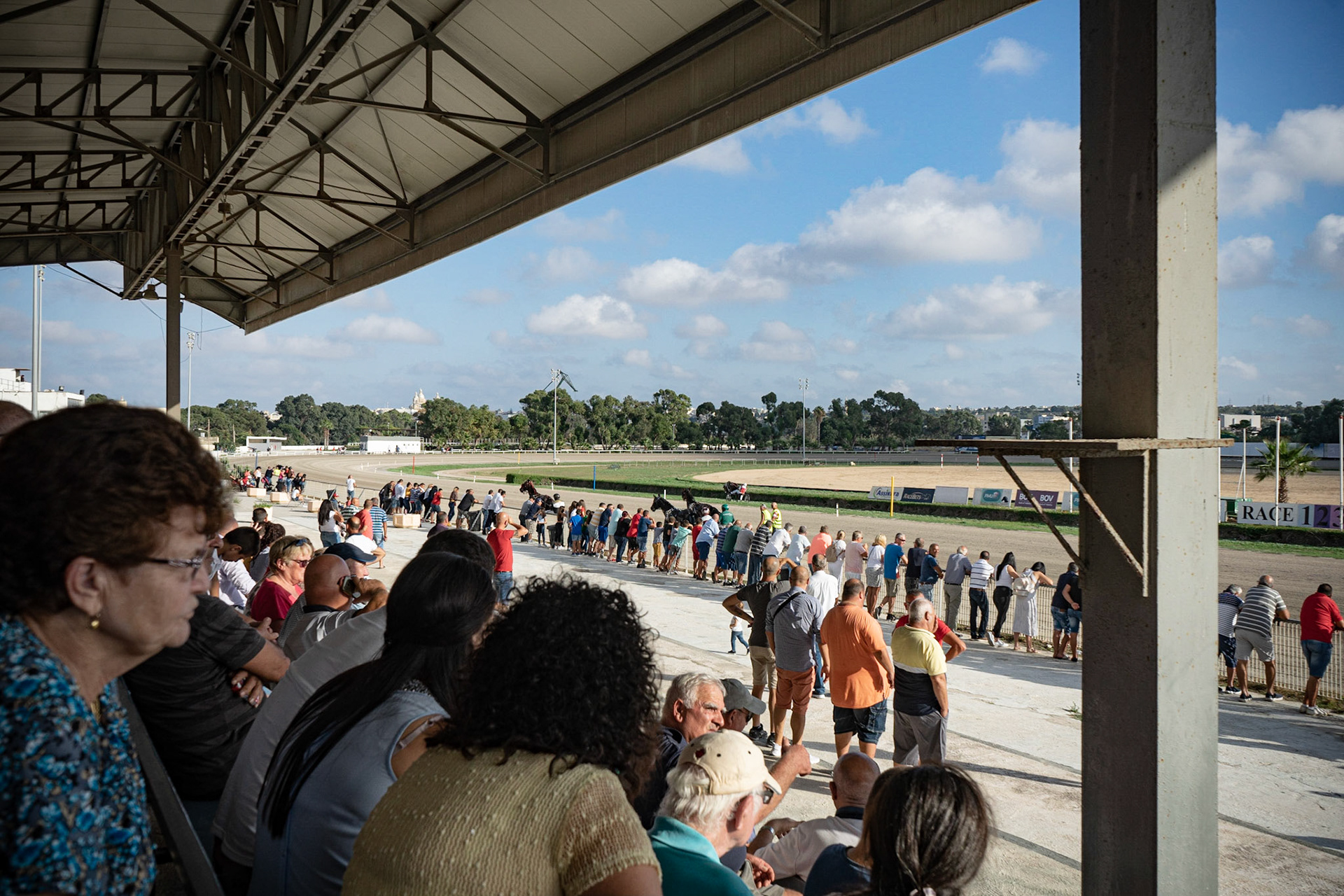
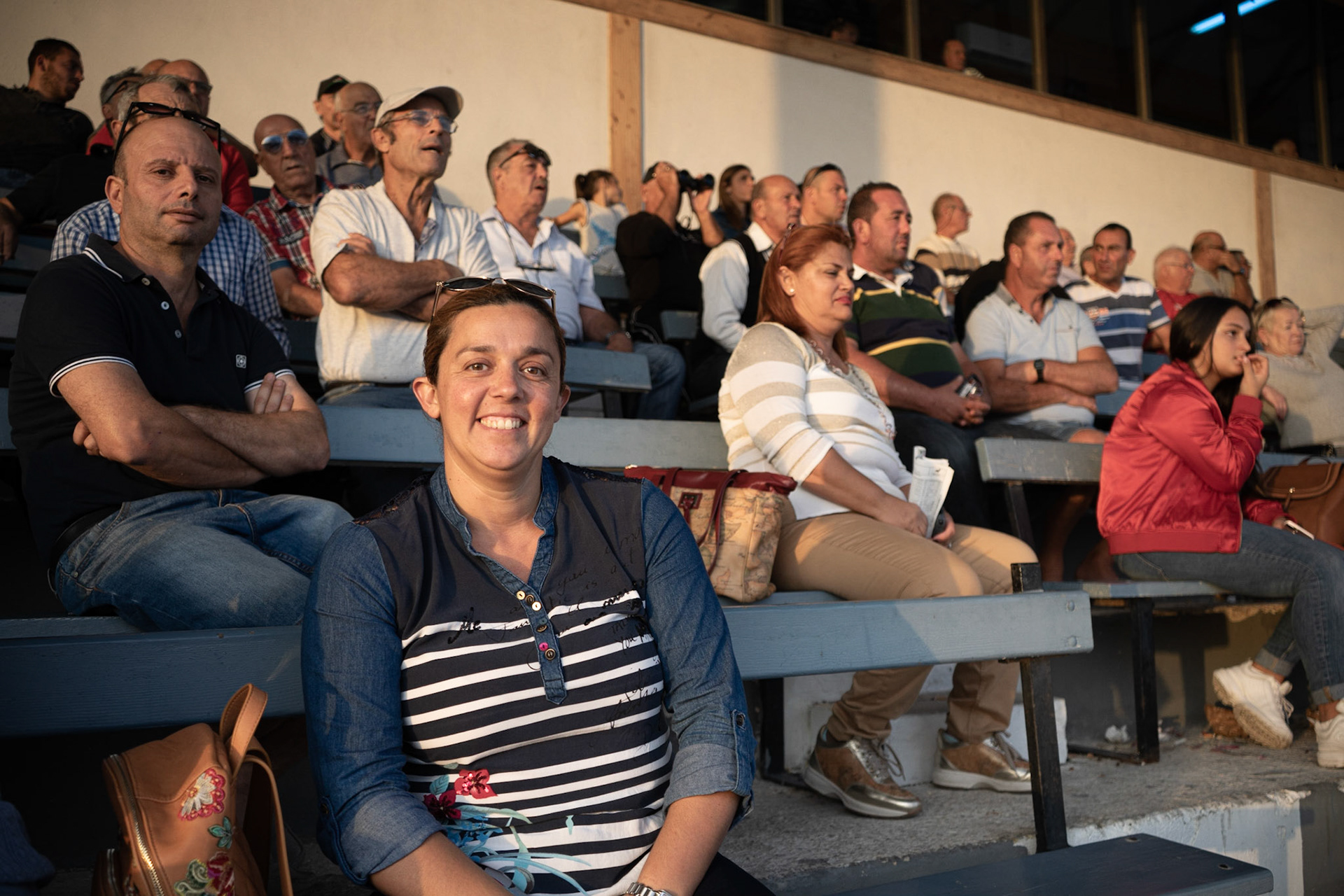
Since for harness racing there's no gender restriction, you can find also female jockeys - even if far fewer than men. In the portrait, Romina Delceppo, having won her own race (as the only female jockey) just the day before, came back on Sunday to watch the races.
Being also harness racing a gender neutral competition, women can compete against men in the same race. As Romina Delceppo did, winning over her male competitors. The day after the victory, she came back to the racing track to follow the races as a spectator.
Racing Club officials have the task to keep an eye on all-winning horses. If a horse is winning his races for the third week in a row, they will send him to mandatory anti-doping checks, besides the regular ones.
Here one of them - while explaining to me all the aspects of racing in Malta - was constantly keeping an eye on on the first horse leading and on his own anti-doping watchlist hand notes.
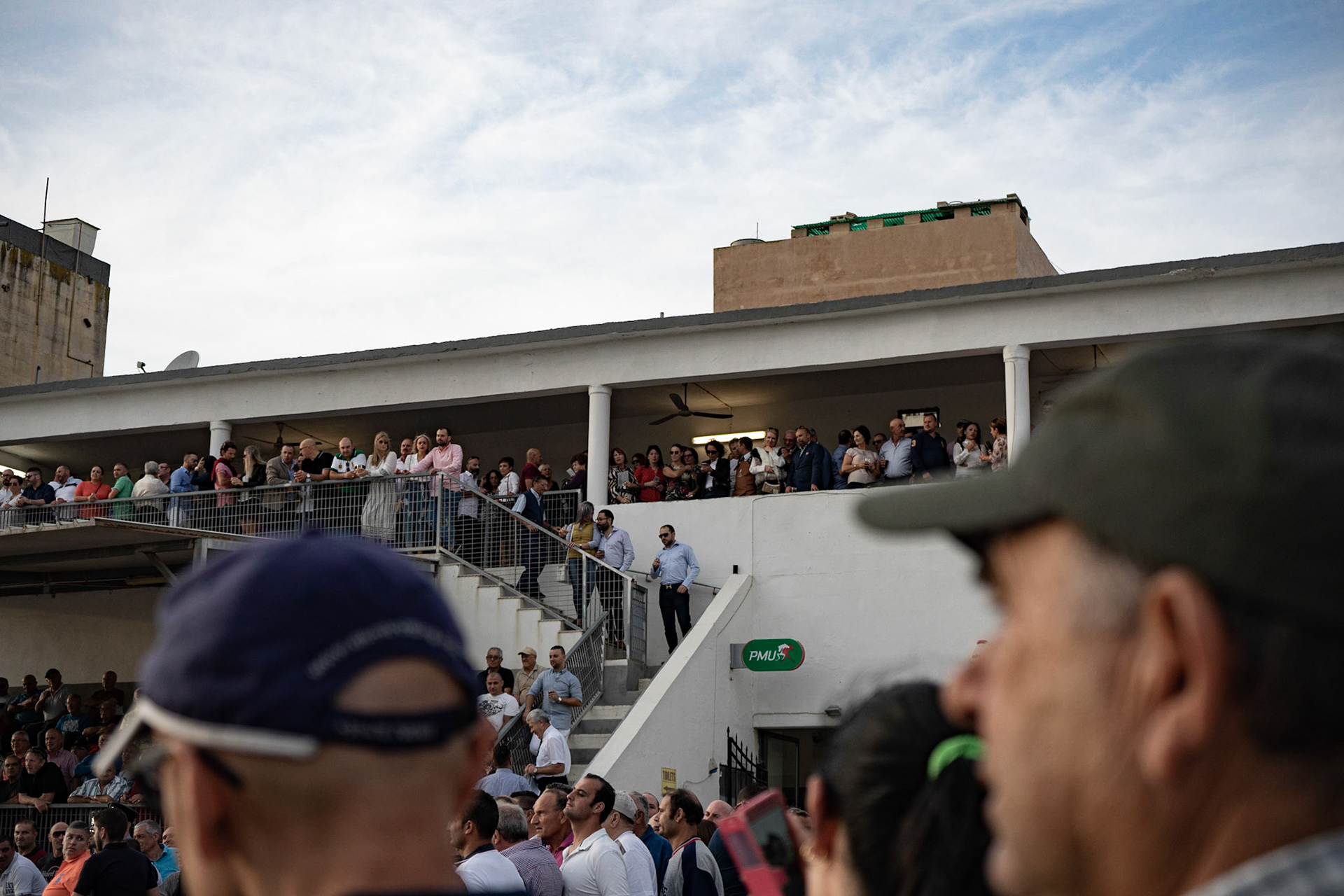
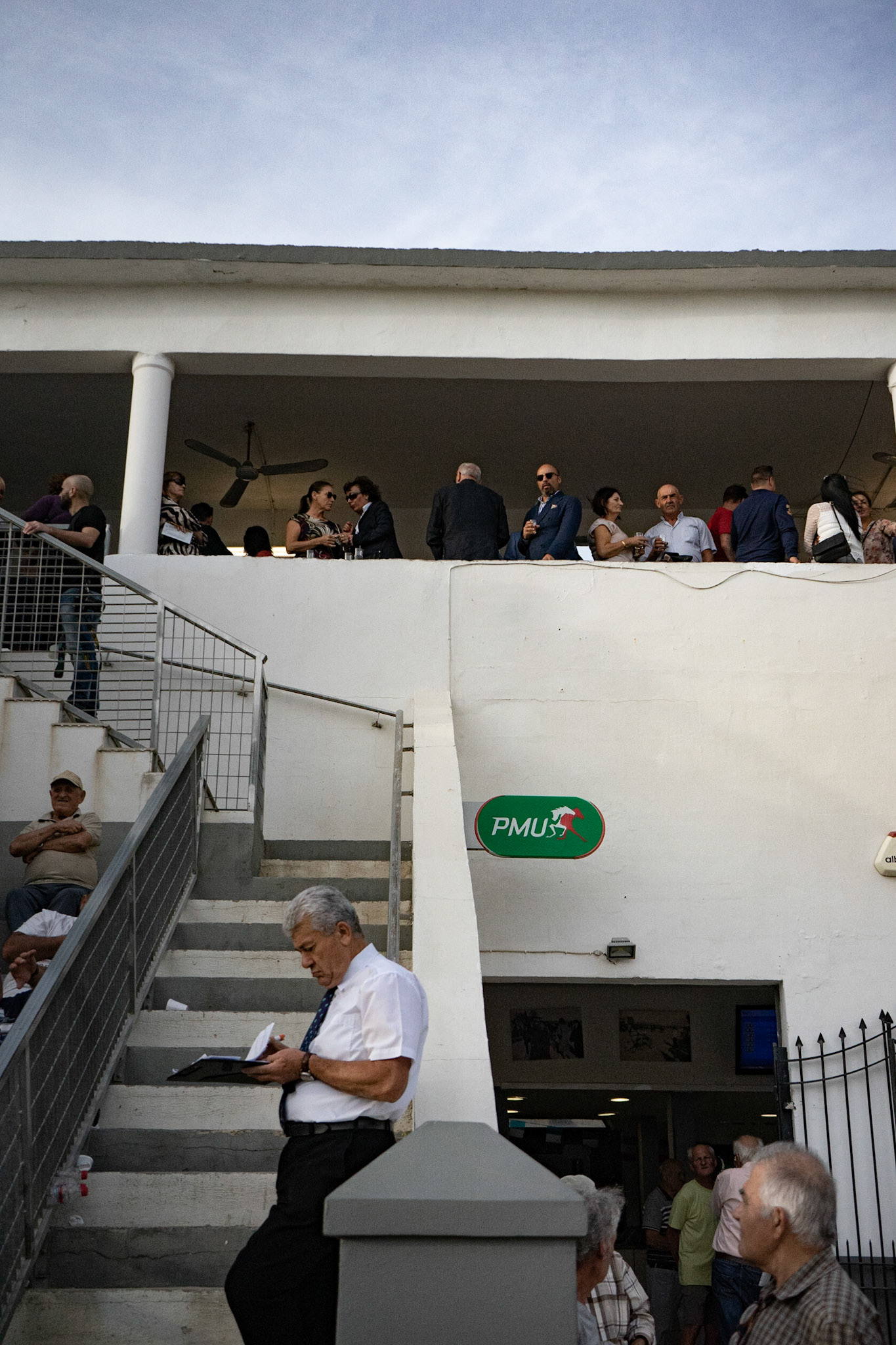
During special events like Premier finals class representations and social divides become ever more glaring. There's a tangible separation between horse carers, betters, familiars on one side, on the ground, versus honourable gents and ladies, public authorities and well-off businessmen on the other, in the guarded tribune.
An only official photographer of the Marsa Racing Club has official clearance to shoot for the press and the Club itself. He is the only one who steps in a running racing track besides the yellow hi-vis vested janitors.
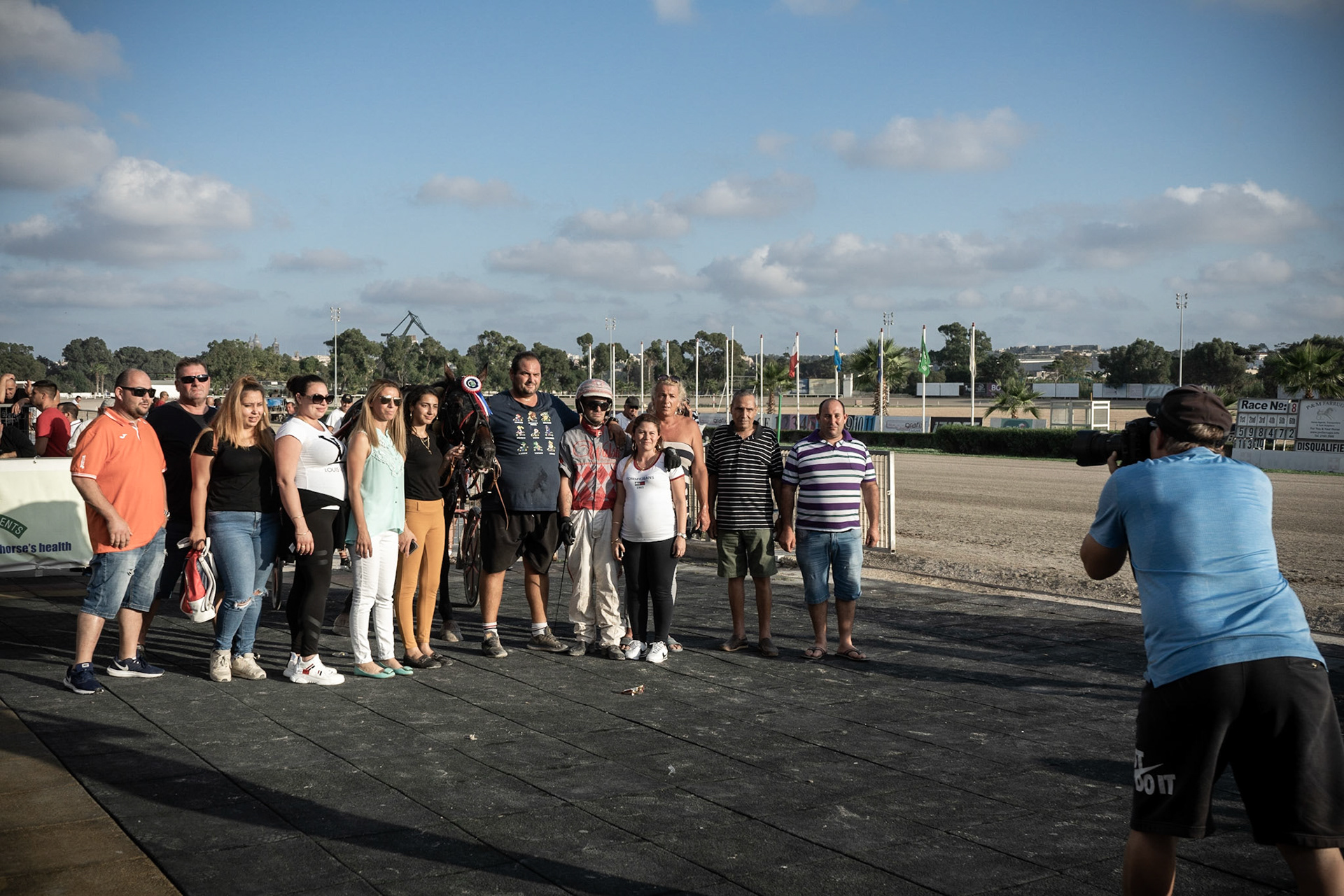
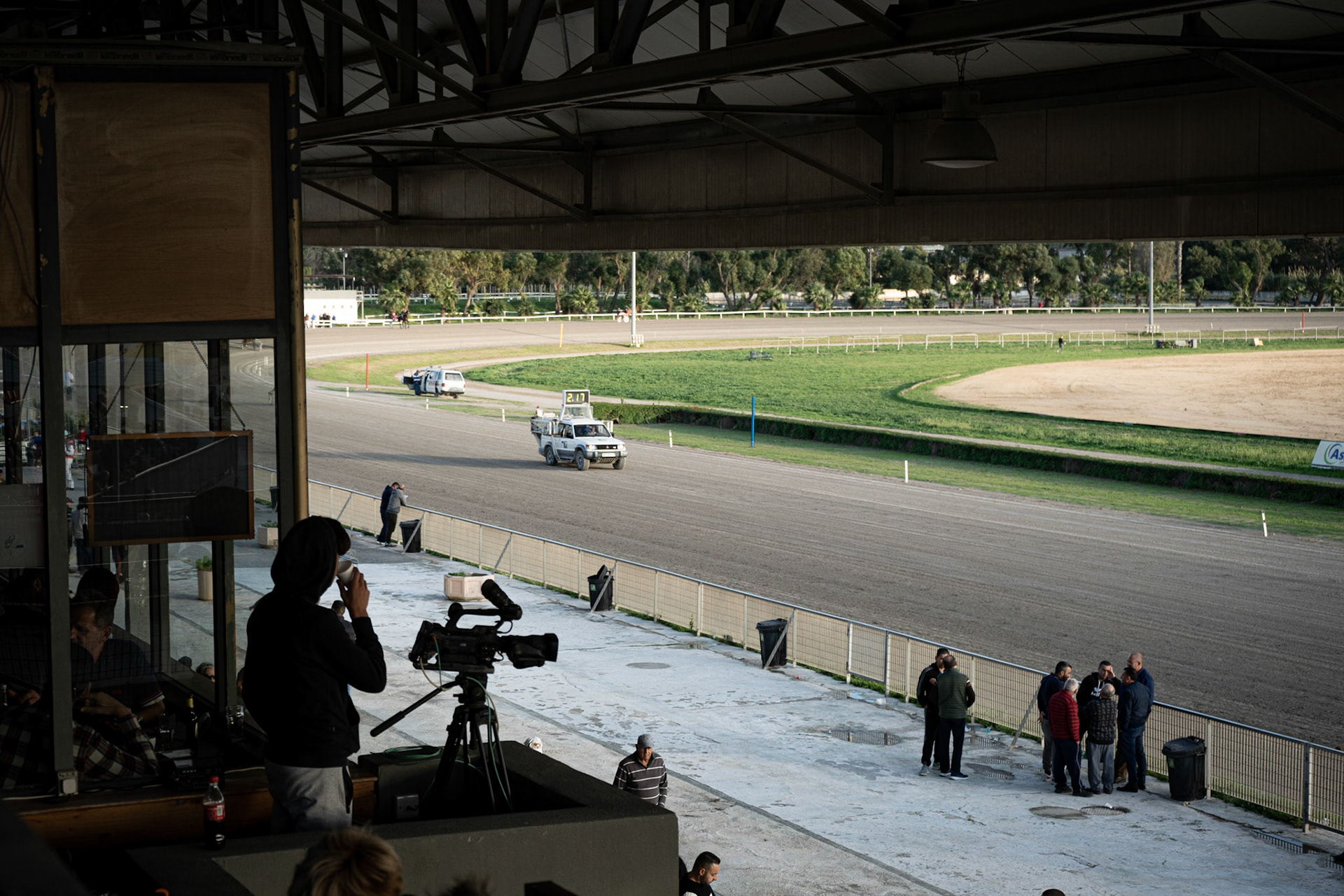
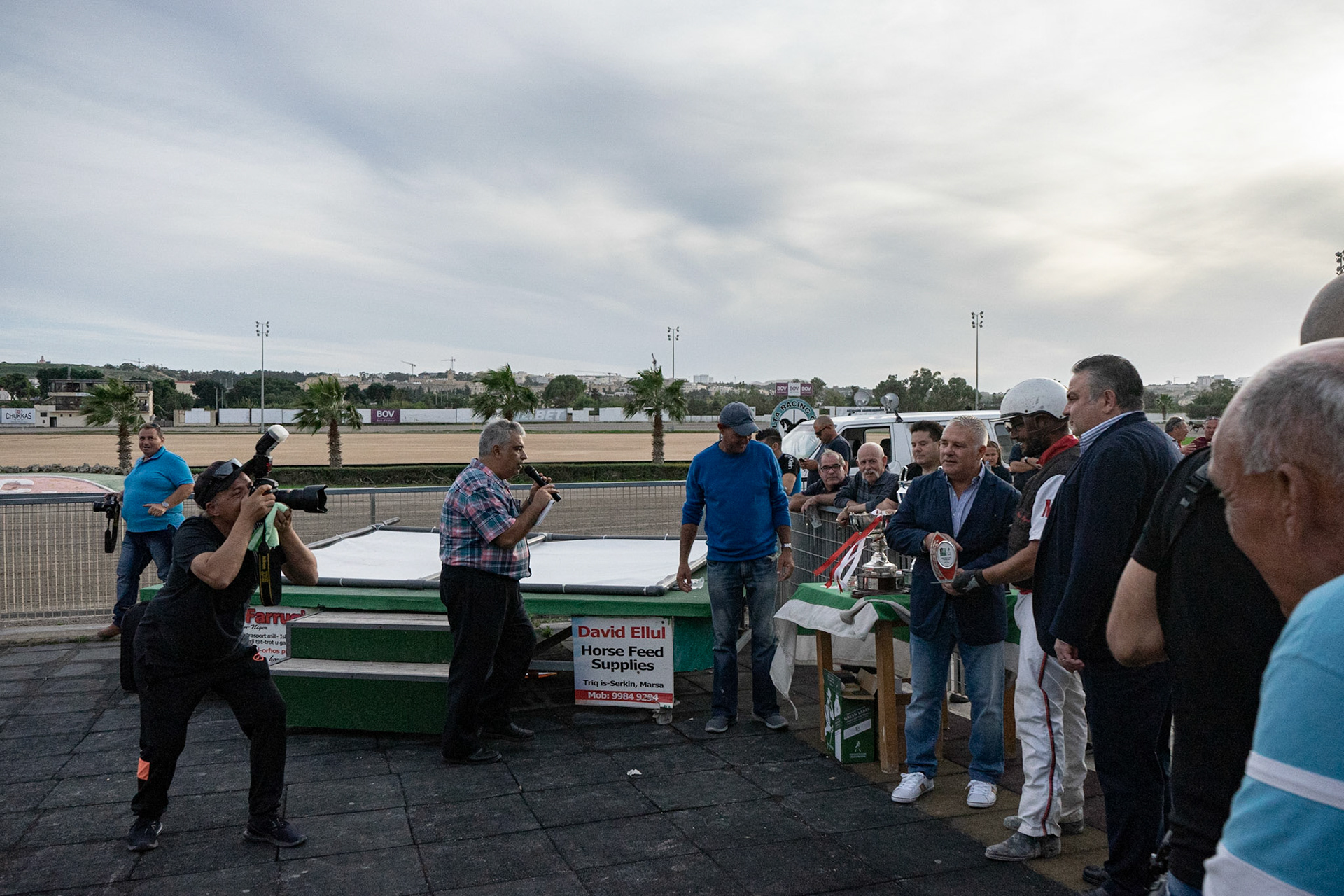
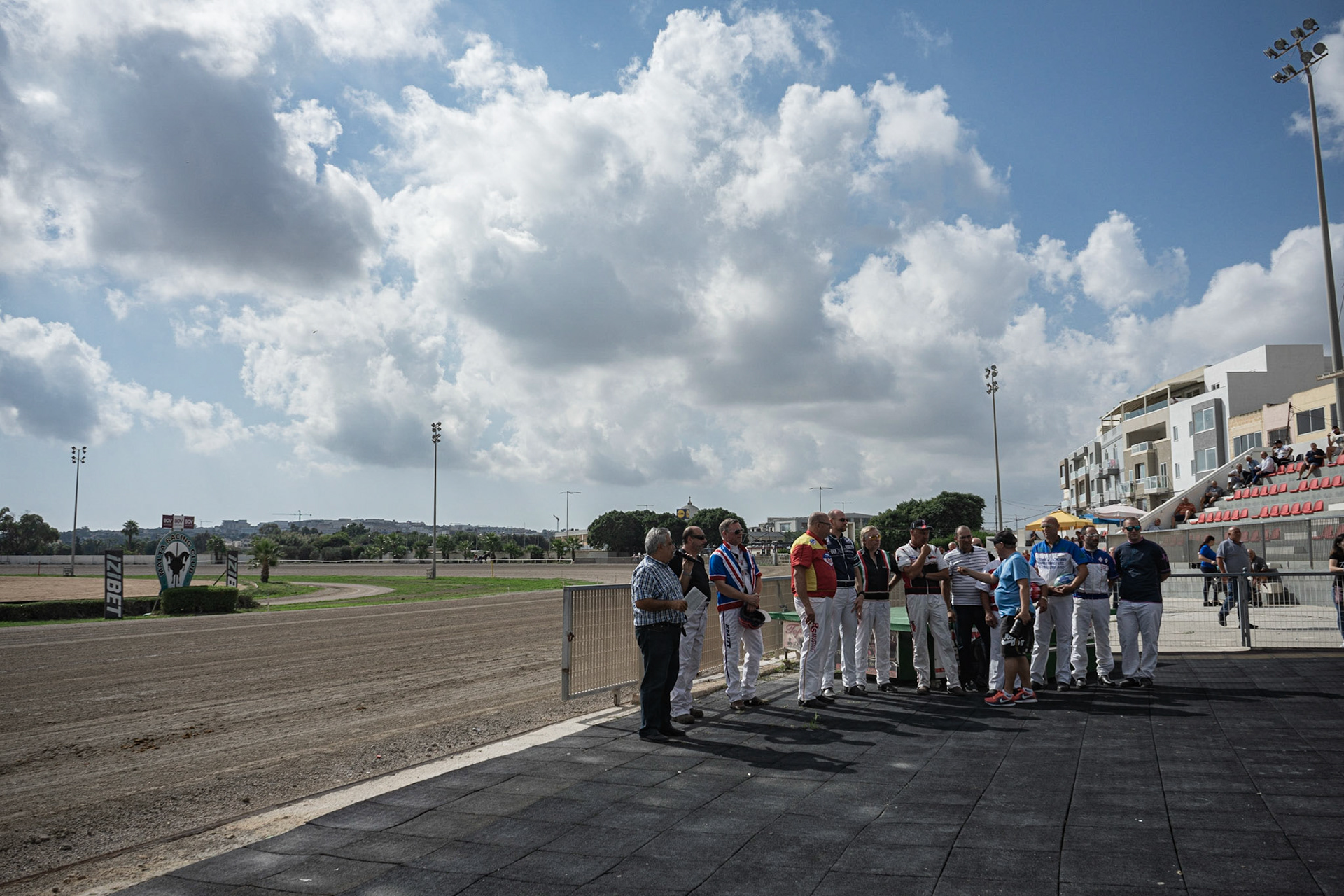
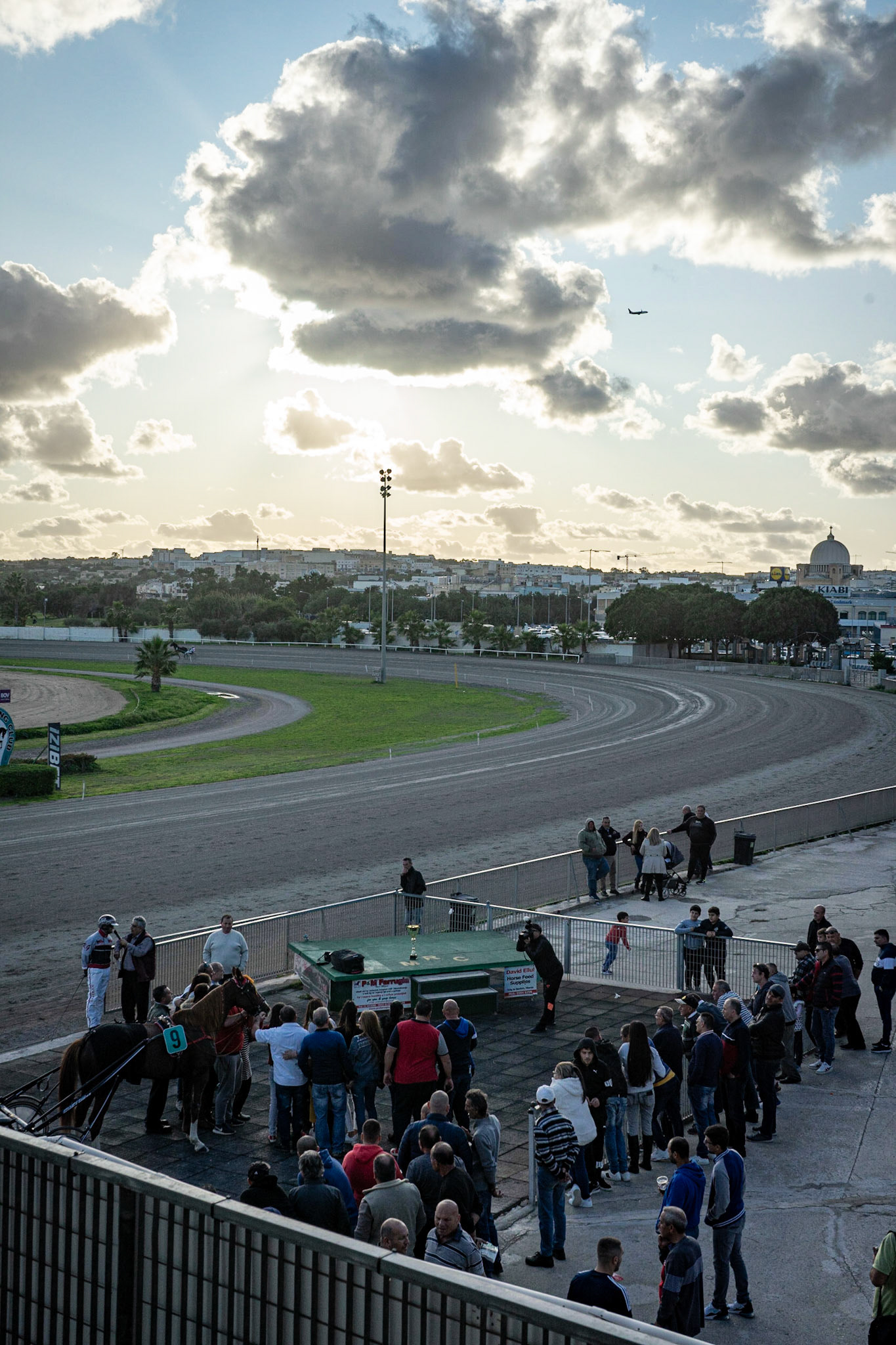
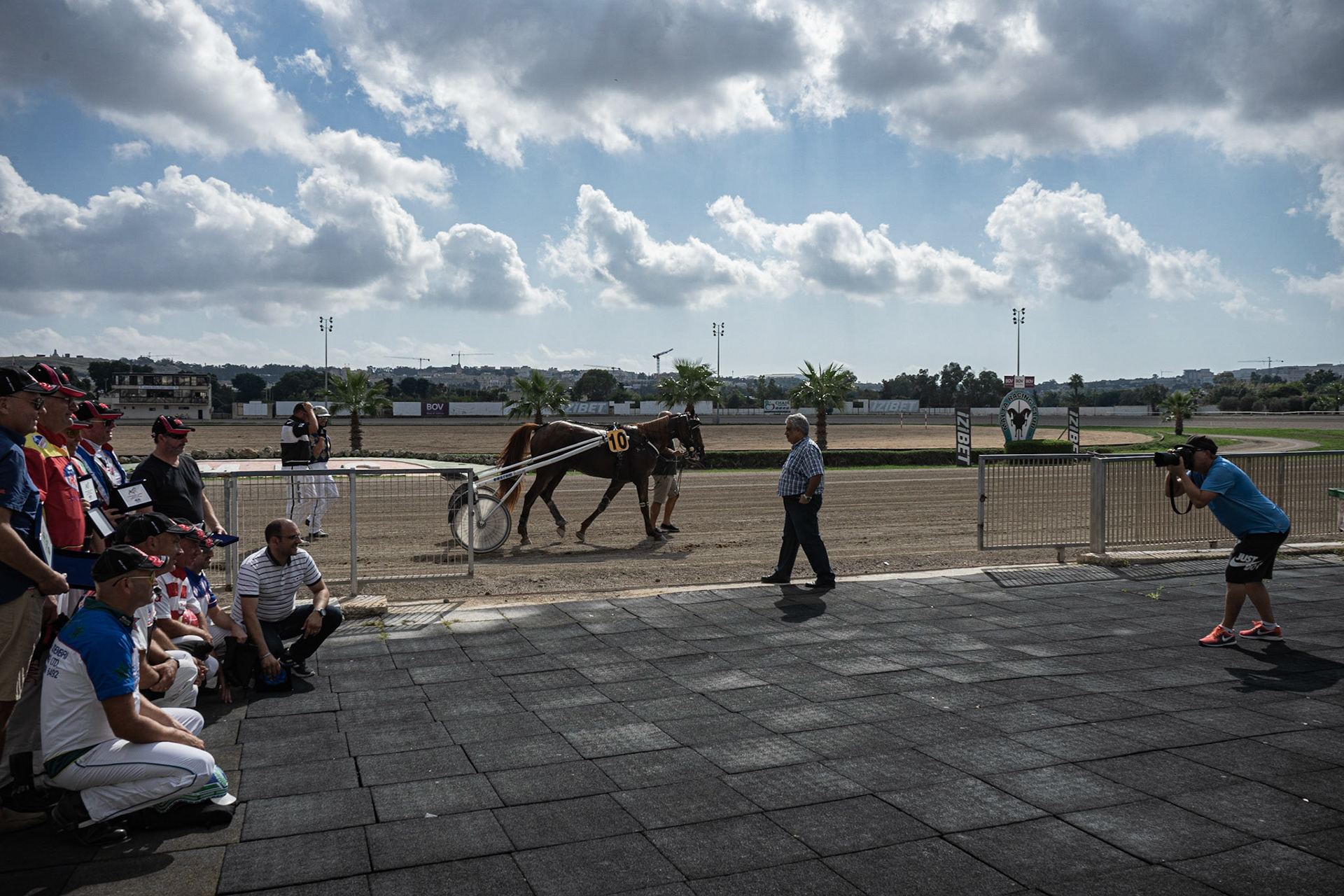
Although on the entrance gates there are multiple "cameras forbidden" bans, in all the occasions guards and officials saw me carrying my mirrorless and shooting, without ever saying anything. One of them told me that as long as I wasn't shooting for business, I could do whatever I wanted.
The winner horse is walked towards the press enclosure by the jockey's relatives.
Marsa, November 2019
Marsa, November 2019
The winner of the Premier final is white coated and adorned with laurels.
Marsa, November 2019
Marsa, November 2019
Official photo shoot. Even with the victory decorations, the cart always stays harnessed to the horse.
Marsa, November 2019
Marsa, November 2019
